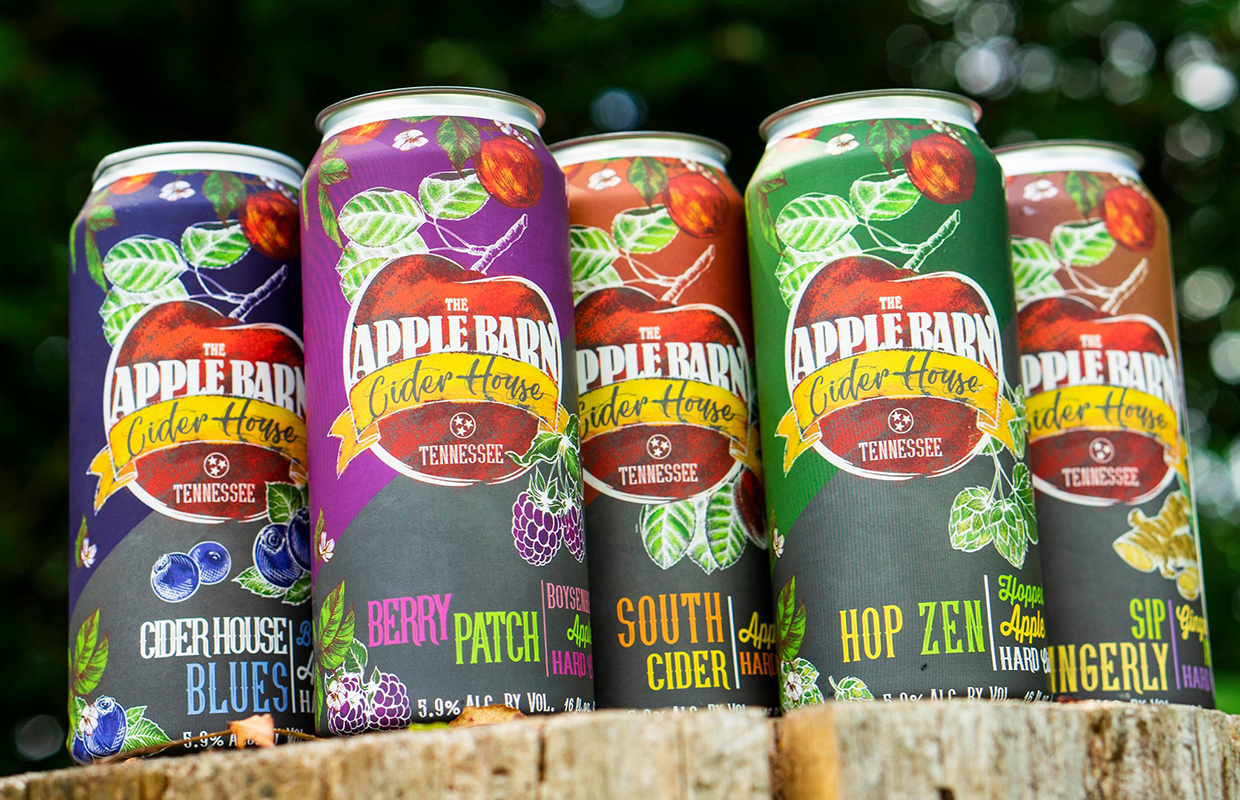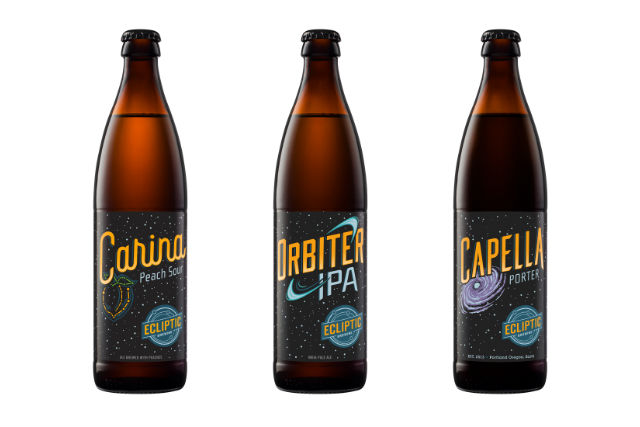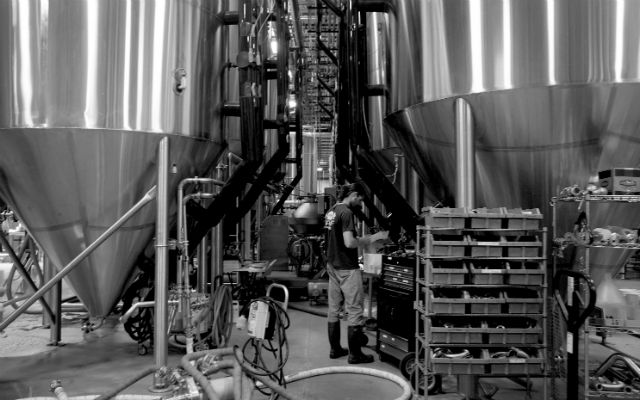
Long established as a part of the Rocky Top Wine Trail, Apple Barn Cider House was launched on the ground of Apple Barn Winery as winemaker James McKinney delved further and further down the exciting aspects of cider making.
With the company since 2013, McKinney began to experiment with ciders to add to the wine lineup for the group — which includes four wineries in the Pigeon Forge/Sevierville and Gatlinburg area of eastern Tennessee — in 2016. By 2019 the Cider House at Apple Barn was launched.
“Business has really exceeded their [ownership’s] expectations a lot,” McKinney told Brewer recently. “Last year I actually produced more cider here than wine. It was around 21,000 gallons of wine and 28,000 gallons of cider. That’s both properties, but the majority of it came out of here.”
A tourist haven for the area, McKinney said Apple Barn estimates an average of 600,000 people walking up and down the sidewalk every year.
“So we open our doors and they fall inside,” he said with a chuckle. “Now when we opened this up, it was a whole lot of people stepping in looking for the “soft ciders.” So that took a while. But they added us to the Wine Trail that goes around town here. Within the same sidewalk, they can stamp off two of those now (Apple Barn Cider and Winery).
“I really think we are developing a fan base because we have people coming back for seasonals already.”
Seasonals are only sold out of growlers right now because of such fast-growing pains. He said he has seen people from far away come to refill multiple growlers, but creating a local base of sales can be important as well.
“It’s as much as we can move for the most part,” McKinney said. “They weren’t prepared for the sudden increase in sales (this summer).”
Core brands, like South Cider, Cider House Blues, and Hop Zen get canned by Iron Heart Canning, although McKinney said that bottles may become the future for the brand because it would align better with shipping for the company that does a lot of Direct-to-Consumer sales for wine and the packaging is set up better for bottles.
The ‘secret sauce’ that McKinney says helps Apple Barn stay unique? The ability to crush on-site and utilize the wine to flavor the ciders with crushed fruit like raspberry, peach, and blueberry. That means being able to be consistent in blending as well for a quality product that has seen increased sales year after year, even with pandemic conditions.
READ MORE: Cider Corner: Why Fall Flavors Still Sell for Portland Cider
“I like to go with single-strength juices. I like to use ways to flavor that aren’t going to be easily duplicated,” he said. “You know, strawberry and lemon aren’t a unique combination. But the way I do it makes it unique. Because instead of using the fake candy strawberry/Jolly Rancher flavor, we use single-strength strawberry juice.
“It’s expensive. As far as to get the flavor you want, it’s really expensive. But as long as it’s selling they’re okay with buying it. I have stuck to my guns on it. And in 20-some formulas, I have one brand that has juice concentrate in it. That’s just because pomegranates are a real pain to try to press out.”
McKinney said he could tell someone exactly how to do something, but it won’t taste the exact same way as when he would make it. A lot has to do with going past the numbers.
“The way I do my ciders and wines is I start separate fermentations. Then I blend those together to create a consistency in the product,” he said “I try to personalize the wine and make it a little bit more to my liking and what I think will fit out there, but the ciders are all my baby.
“I want them to be premium craft cider. And that’s basically what we’ve been selling those as.”




Be the first to comment